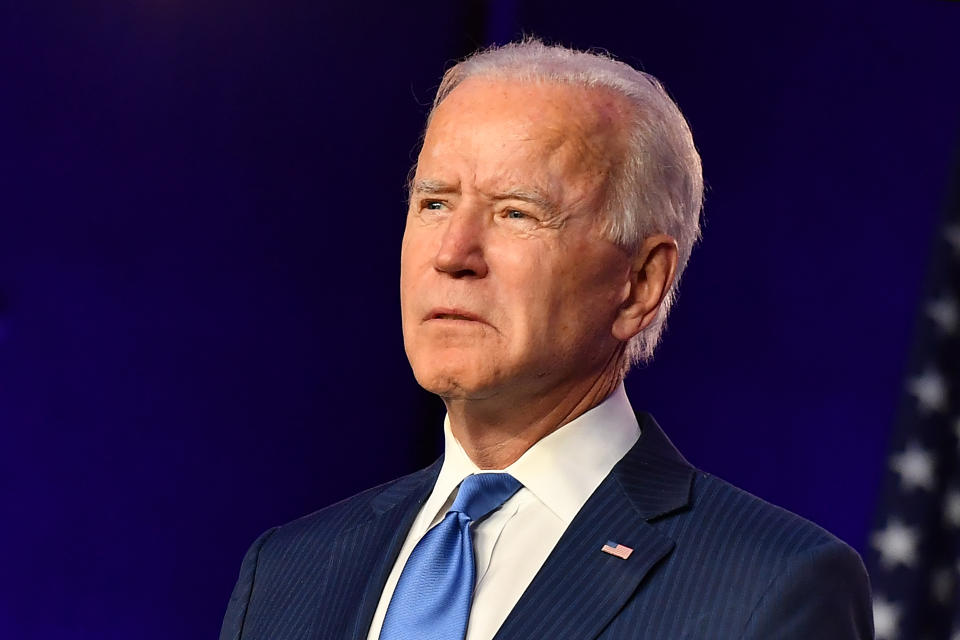EU will watch Biden's biggest battleground — Big Tech

President-elect Joe Biden is no stranger to an economic crisis, after all when he first entered the White House in 2009 as vice president to former US president Barack Obama, the economy was in a recession.
The world was still reeling from the mortgage crisis and the collapse of the Lehman Brothers investment bank, when Obama was elected in 2008.
In 2021 he will lead the US amidst another economic downturn. This time due to COVID-19.
While his economic policies for the next four years face the challenge of a divided government, Big Tech may be one of the areas where Biden can count on cross-party and global support.
The dominance of big tech firms such as Google, Facebook (FB), Amazon (AMZN) and Apple (AAPL) has angered US, UK and EU politicians who have all suggested their own plans to tackle the industry.
While tech companies have benefitted from incumbent president Donald Trump’s tax cuts, he has also angered many, mainly when accusing social media sites of spreading false information.
READ MORE: US election: Biden is going to put the US-UK 'special relationship' to the test
Then there is Trump’s waging trade war with China, which firms have seen as a hinderance.
During his time in the White House, Trump attacked 5G, drove the global blacklisting of Huawei and forced the sale of TikTok’s US operations.
Trump’s aggressive stance on Huawei saw multiple countries, including the UK, oust the Chinese firm.
In July, the UK government decided to block Huawei from having a role in the country’s 5G network.
As a result, British telecoms companies were instructed to remove Huawei equipment from the 5G network by 2027 and stop buying new 5G equipment from the company by the end of 2020.
Under Biden, US tech companies expect a more relaxed relationship with the East.
Across the pond the situation is different
Europe and Britain have been pushing for a global digital tax on tech firms — which has only recently been shelved after Trump threatened retaliatory tariffs on products from British car exports to French cheese.
The US election also made the timeline for a deal — expected for the end of 2020 — unlikely.
The European Commission has said that if no international deal could be struck this year the region would contemplate implementing its own digital services tax.
In June, the Trump administration pulled out of negotiations with UK and the EU regarding the issue. US trade secretary Steve Mnuchin blamed the lack of “progress” for the country’s withdrawal.
About 140 countries were involved in the talks organised by the Organisation for Economic Cooperation and Development (OECD) to bring global tax rules into the digital era.
Previously, the US resisted individual countries implementing their own digital tax in the absence of an OECD-led international deal.
In 2018, former UK chancellor Philip Hammond first touted the idea of a digital services tax, saying it was designed to make sure that “global giants with profitable businesses pay their fair share.”
In July, current chancellor Rishi Sunak risked angering the US after mulling a proposal of a digital sales tax on online retailers.
Watch: US threatens new tariffs on $2.4bn in French goods
Why a digital sales tax was paused before
Over the last year, the US government has hit back at plans from multiple European countries to impose a digital sales tax due to how many massive US corporations would be stung by such a levy.
Back in January, the UK was asked to pause its planned 2% tax on the sales of search engines, social media companies, and online marketplaces, which would have come into effect from April 2020. This was in line with France which also paused the tax in January.
The UK’s initial digital tax move came shortly after France imposed a new law last year. It was set to retroactively go into effect from early 2019 and would apply to any digital company with sales of more than €750m (£685m, $878m), in which 30 companies are expected to be affected.
A report last year accused six US tech firms — Amazon, Facebook, Google, Netflix (NFLX), Apple and Microsoft (MSFT) — of “aggressively avoiding” $100bn of global tax over the past 10 years by moving sales and profits through low-tax countries such as Bermuda, Ireland, Luxembourg, and the Netherlands.
Anti-trust and the courts
Anti-trust, the courts and Big Tech pose another battleground for Biden outside of digital services tax.
At the moment Alphabet (GOOG), Google’s parent company is fighting an anti-trust lawsuit brought by the US Department of Justice.
The company is being charged with abusing its dominance in search and search advertising to maintain an illegal monopoly.
Meanwhile, the Federal Trade Commission is also gearing a legal suit against Facebook — after an investigation of over a year — accusing the social media giant of using its position to stifle competition.
All the while US attorney generals are preparing their own cases against big tech, a move which could push Biden to implement legislation which regulates monopolies in the digital age.

 Yahoo Finance
Yahoo Finance 